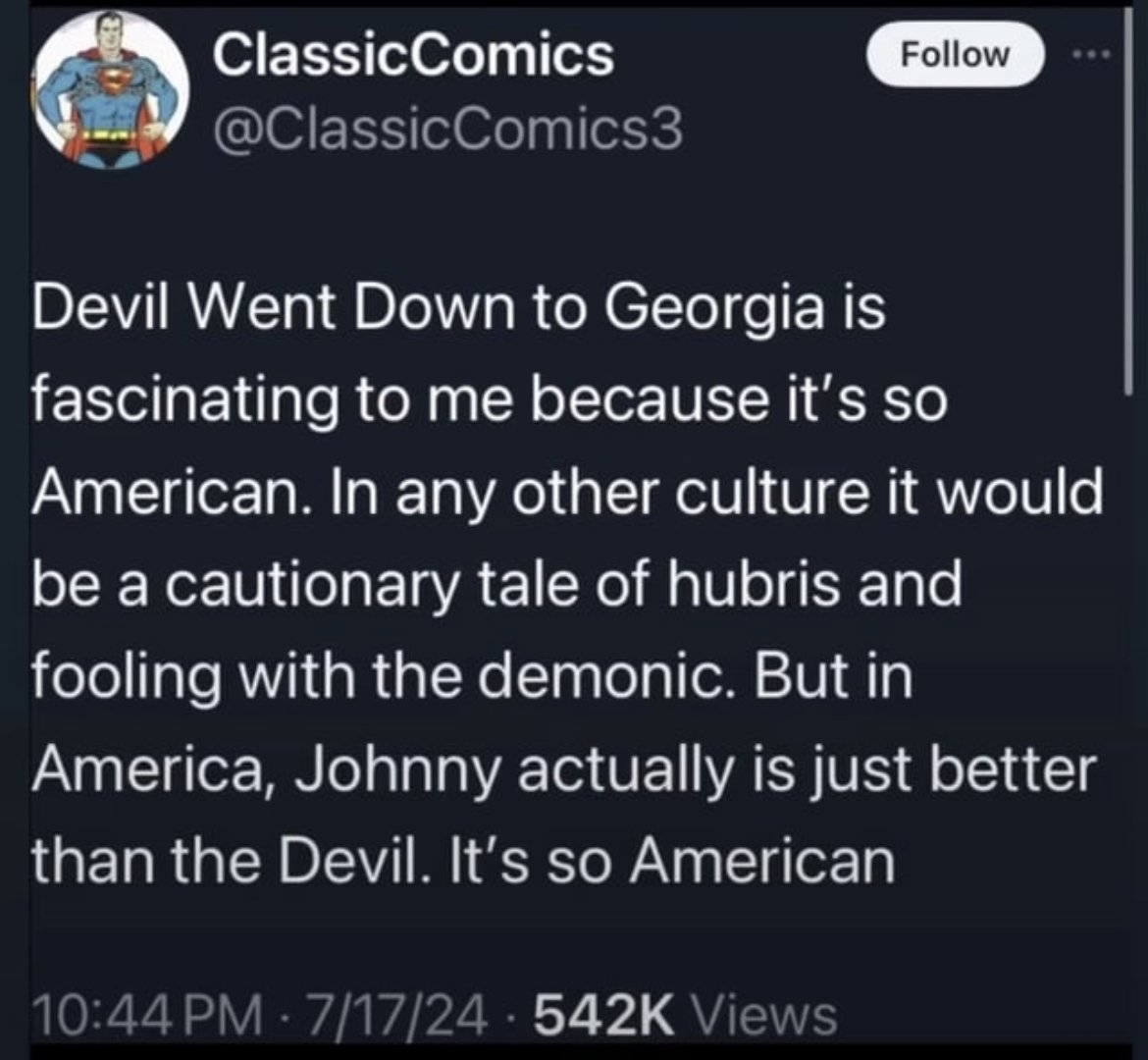There’s plenty of stories from other countries about the cunning hero outsmarting the fae or similar. Just that in America, the hero always wins vs other countries where there are also many stories where the hero gets killed.
People Twitter
People tweeting stuff. We allow tweets from anyone.
RULES:
- Mark NSFW content.
- No doxxing people.
- Must be a pic of the tweet or similar. No direct links to the tweet.
- No bullying or international politcs
- Be excellent to each other.
- Provide an archived link to the tweet (or similar) being shown if it's a major figure or a politician.
Nathaniel Hawthorne and Edgar Allen Poe, two of America's most famous writers, both based their bodies of work on people paying the price of losing to temptation/sin. Although to be fair I couldn't think of any popular songs about that.
A famous legend in my culture is of a humpbacked man stumbling across some magical fuckers and they take pity on him and take away the hump in his back. He is so happy and chirpy he sings their praises and jumps with glee, so they give him a worse hump for being an annoying cunt.

Johnny admits to knowing that taking the bet was a sin and commits it anyway. Johnny gets the golden fiddle, but the devil gets his soul in the end anyway. What's 60 more years to an eternal being? The song can still be a cautionary tale you just need to finish it.
Point kinda holds, though. Ignoring the long-term consequences for short-term gain seems to also feature heavily in America.
Yep only in America
🙄
The county was founded by generations of people who came here with little thought to long term consequences, so it tracks
Johnny admits to knowing that taking the bet was a sin and commits it anyway.
No, he admits that it might be a sin.
The boy said, "My name's Johnny and it might be a sin
But I'm gon' take your bet, you're gonna regret, I'm the best there's ever been"
That means he's acknowledging its a sin but he will do it anyways. You are thinking it says it might be a sin or might not, but thats not how the sentence goes.
I definitely read it as an acknowledgement of a risk rather than an admission of wrong.
The sentence can be interpreted either way.
Eh? The wager was Johnny either gets the fiddle or loses his soul, why would he go to hell anyway?
No human is without sin, after all.
Exactly. Johnny wins the contest, so he gets the fiddle. If he had lost, he would have forfeited his soul.
It's rooted in the tradition of American machismo and braggadocio. Hyperbole is a huge part of the American oral tradition. You go to any small town in the Southern US and the old timers will have some tall tales that beggar belief and they will tell them too you as if it were the gospel with no winks or nods.
I think Devil Went Down to Georgia is supposed to be viewed as a boast by Johnny himself. "I'm a really good fiddle player." "Oh yeah?" "Yeah, this one time I beat the Devil himself." "I told you once you sonofabitch, I'm the best there's ever been."
American machismo and braggadocio
machismo and braggadocio
machismo
braggadocio
Do you know where these words came from? Americans have neither when compared.
First of all I wasn't comparing. 2nd of all it is incredibly stupid to argue that American machismo doesn't exist. Compared to fucking what?
Says the person with the Superman profile pic.
I heard this song playing in a restaurant at lunch today then I come home to find this. Freakin' weird.
We've been trying to send you hidden messages all day.
